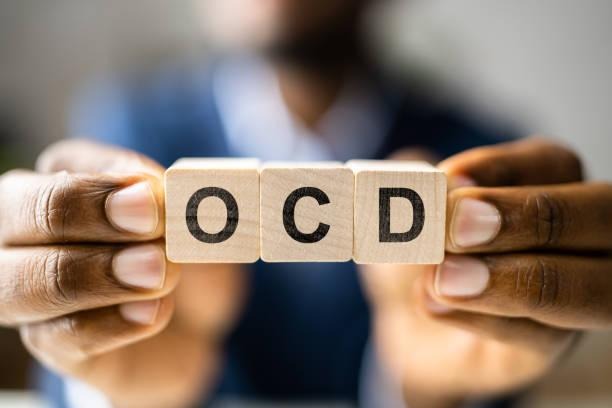Obsessive-Compulsive Disorder (OCD) is a mental health condition that affects millions of people around the world. It involves uncontrollable, recurring thoughts (obsessions) and repetitive behaviors or rituals (compulsions). These behaviors and thoughts can interfere with daily life, causing distress and anxiety. However, OCD therapy can play a crucial role in managing and even overcoming the symptoms of OCD, ultimately leading to improved mental health.
In this blog, we’ll explore the benefits of OCD therapy, its various treatment options, and how it can help individuals regain control over their lives. Whether you are seeking therapy for yourself or a loved one, understanding how OCD therapy works can guide you toward a healthier and happier life.
What Is OCD Therapy?
OCD therapy refers to a set of therapeutic techniques designed to help individuals manage their obsessive thoughts and compulsive behaviors.
The goal of OCD therapy is to reduce the distress caused by these thoughts and actions, allowing individuals to lead a more fulfilling life.
There are different types of therapies used to treat OCD, with Cognitive Behavioral Therapy (CBT) and Exposure and Response Prevention (ERP) being the most commonly used. These therapies are backed by research and have shown to be highly effective in treating OCD.
Types of OCD Therapy
Cognitive Behavioral Therapy (CBT)
CBT is a structured, goal-oriented therapy that helps individuals identify and change negative thinking patterns. In the case of OCD, CBT helps individuals recognize irrational thoughts and replace them with more balanced and realistic ones. This therapy teaches individuals to cope with their obsessions in a healthier way and gradually reduce their compulsions.
Exposure and Response Prevention (ERP)
ERP is a form of CBT that is considered the gold standard for treating OCD. It involves exposing individuals to situations that trigger their obsessive thoughts while preventing them from performing the compulsive behaviors. This technique helps individuals build tolerance to anxiety-provoking situations and learn that their fears often do not lead to the catastrophic outcomes they expect.
Mindfulness-Based Cognitive Therapy (MBCT)
MBCT combines aspects of mindfulness and cognitive therapy to help individuals become more aware of their thoughts and feelings. By practicing mindfulness, individuals can learn to observe their obsessive thoughts without reacting to them, which reduces the impact of these thoughts on their daily life.
Medication-Assisted Therapy
In some cases, therapy may be combined with medication to manage OCD symptoms. Selective serotonin reuptake inhibitors (SSRIs) are often prescribed to help regulate serotonin levels in the brain, which can help reduce OCD symptoms.
Key Benefits of OCD Therapy
Now that we understand the different types of therapy for OCD, let’s explore the many benefits of engaging in OCD therapy for better mental health.
1. Reduces Symptoms of OCD
The primary benefit of OCD therapy is its ability to reduce the intensity and frequency of obsessive thoughts and compulsive behaviors. By using techniques like CBT and ERP, individuals can learn to manage their obsessions and compulsions in a way that minimizes their impact on daily life. Over time, therapy can significantly decrease the severity of symptoms and improve overall mental well-being.
2. Improves Emotional Well-being
OCD often leads to feelings of guilt, shame, and frustration. Individuals may feel trapped in a cycle of repetitive thoughts and actions, which can contribute to low self-esteem and depression. OCD therapy helps individuals gain a sense of control over their thoughts and behaviors, leading to improved emotional well-being. As they experience fewer compulsions and obsessions, their confidence and sense of self-worth improve.
3. Increases Coping Skills
OCD therapy equips individuals with the tools and strategies they need to cope with difficult situations and emotions. Whether it’s learning how to manage anxiety, challenge negative thoughts, or resist the urge to engage in compulsive behaviors, therapy provides practical coping skills that can be applied in real-life situations. These skills can help individuals better handle stressors and challenges, leading to greater resilience and mental strength.
4. Promotes Better Relationships
OCD can strain relationships with family, friends, and colleagues. The need for reassurance, repeated behaviors, and the avoidance of certain situations can create misunderstandings and frustration. Through therapy, individuals can learn to communicate more effectively, set boundaries, and reduce the impact of their symptoms on their relationships. This can lead to healthier, more fulfilling connections with others.
5. Increases Quality of Life
By reducing the time spent on compulsive behaviors and obsessive thoughts, OCD therapy can significantly improve the quality of life. Individuals can focus more on activities they enjoy, pursue their goals, and engage in social and professional opportunities without the constant burden of OCD symptoms. As therapy progresses, individuals often find they can lead a more balanced and fulfilling life.
6. Encourages Long-Term Recovery
OCD therapy not only provides short-term relief but also encourages long-term recovery. Through consistent therapy, individuals can learn to manage their symptoms for the long haul. ERP, in particular, helps individuals build long-term coping strategies by exposing them to their fears in a controlled manner, allowing them to eventually reduce or eliminate compulsions over time.
How Therapy Helps with Specific OCD Symptoms
OCD can manifest in a variety of ways, with different individuals experiencing different obsessions and compulsions. Therapy addresses these symptoms by focusing on the specific fears and behaviors that an individual is dealing with. Let’s look at how OCD therapy helps with common OCD symptoms:
Obsessions with Contamination
Individuals who fear contamination may engage in excessive cleaning or handwashing rituals. ERP therapy gradually exposes them to contaminated objects or situations while preventing them from performing cleaning rituals. Over time, this helps reduce the fear of contamination.
Obsessions with Harm or Safety
Some individuals with OCD have persistent fears of harming themselves or others. OCD therapy helps them confront these fears in a controlled and safe way, gradually decreasing their anxiety and compulsive safety behaviors.
Obsessions with Symmetry or Order
For individuals who feel compelled to arrange things in a particular order, OCD therapy helps them break the need for symmetry by exposing them to situations where things are intentionally out of place. This can help reduce the anxiety that arises from the need for order and symmetry.
How to Get Started with OCD Therapy
If you or someone you know is struggling with OCD, seeking professional help is the first step. Here are a few steps to get started with OCD therapy:
- Find a Qualified Therapist – Look for a therapist who specializes in OCD treatment, particularly those who are trained in Cognitive Behavioral Therapy (CBT) and Exposure and Response Prevention (ERP).
- Consultation and Assessment – During the initial consultation, the therapist will assess your symptoms and discuss treatment options. This is an opportunity to ask questions and ensure that the therapist is a good fit for your needs.
- Commit to Therapy – OCD therapy requires commitment and patience. It may take time to see significant results, but with consistent effort, improvements will occur.
- Consider Medication – In some cases, medication may be prescribed alongside therapy. Be sure to discuss all treatment options with your healthcare provider.
The Bottom Line
OCD therapy offers numerous benefits for individuals looking to manage their symptoms and improve their mental health. From reducing obsessive thoughts and compulsive behaviors to enhancing emotional well-being and improving relationships, therapy provides valuable tools for overcoming the challenges of OCD. If you or someone you love is struggling with OCD, seeking therapy can be the first step toward a healthier, more balanced life. Remember, recovery is possible, and with the right support, you can regain control over your thoughts and actions, leading to a brighter future.



